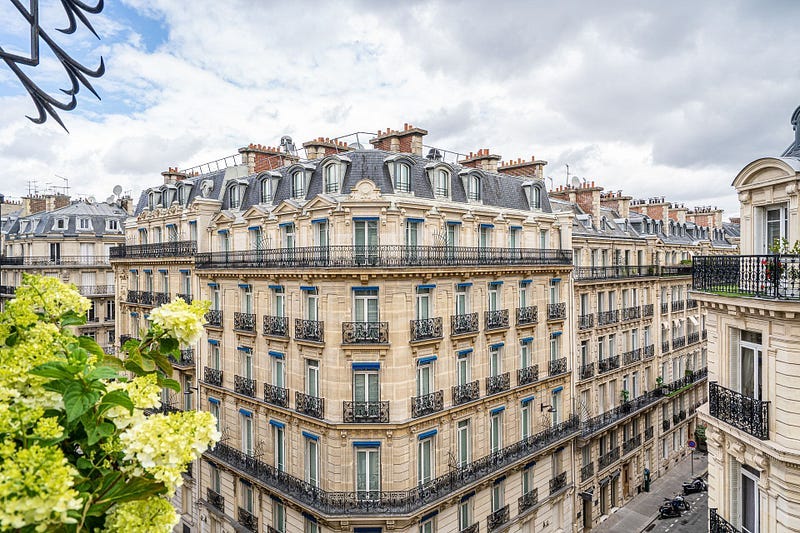Fixing Housing Fixes Everything Else
If only we could figure out who broke housing in the first place…
According to the “Housing Theory of Everything,” housing shortages in cities are a fundamental cause of all of society’s problems.
If you take care of housing, everything else takes care of itself.
Eight quick examples:
1. Fixing housing makes people less fat
Picture the gargantuan size of folks in Houston and Memphis compared to the lithe fashionistas of Paris. Obesity declines in dense, walkable neighborhoods more than in car-dependent sprawl cities. This saves healthcare spending, leading to even better health.
2. Fixing housing makes more babies
Lower housing expenses reduce barriers to parenthood, and having more kids isn’t as big a financial strain when it’s cheap to add another bedroom.
3. Fixing housing forces landlords to get real jobs
Then homes are cheap and plentiful — when supply outstrips demand — rents plummet as landlords compete and beg tenants to give them free money. Most landlords eventually have to quit the extraction game and go do something productive with their lives.
4. Fixing housing means fewer real estate crashes
When homes are cheap and plentiful, only fools try to turn shelter into a gambling investment.
5. Fixing housing increases GDP
If homes are plentiful and cheap in big cities where the jobs are, people can easily move there for work, leading to productivity gains (versus now, where most people are stuck in the hinterlands making bad wages at jobs below their earning potential, because the math on moving to New York or Toronto or London makes zero sense.)
6. Fixing housing saves people time
Millions of people waste billions of hours per year commuting to work in big cities because they can’t afford to live close to where they work. People’s quality of life skyrockets when they lose the stress of commuting and recoup all that stolen time.
7. Fixing housing increases innovation
Humans are magical beings. When people live closer together in dense urban areas (but not too dense), they exchange ideas, which leads to more patents and technological advancements.
8. Fixing housing decreases inequality
When land-hoarders are forbidden from capturing disproportionate economic gains, national income is distributed more evenly. IE, when housing supply is greater than housing demand, landlords can’t vice-grip tenants’ heads and squeeze them for rent until they burst.
I could go on.
When people aren’t forced to spend their entire lives slaving to pay rent to land-lorders and interest to banksters, they have extra money to buy products and services, which a.) increases their quality of life, and b.) creates more jobs so that other people can do the same.
Of course, the Housing Theory of Everything is not entirely true.
Because what’s upstream of housing?
Money-creation.
At present, private commercial banks to the lion’s share of money creation by creating interest-bearing debt-money out of thin air.
We’ll never fix housing so long as there’s an entire parasite class of interest-eaters who want house prices to rise.
And what’s upstream of money-creation?
Land rights.
If all the land is monopolized by a small percentage of the population, all the money in the world doesn’t matter if they refuse to sell.
Here’s how to actually fix housing, and in doing so, fix basically every other economic thing:
1. Give everyone land rights again
Every nation must enshrine the right to land as the first and most fundamental human right.
No access to free resources = humanity is forced to make a profit for someone else in order to survive. This is slavery.
The fundamental basis of all economic justice is ensuring everyone has free access to the natural resources required for human survival.
2. Bring back sovereign money
Abolish fractional reserve banking. No more letting banks create interest-bearing debt-money out of thin air.
3. Replace income tax and sales tax with a land monopolization tax
Doing so frees up people’s income to spend, while taxing land hoarding flushes all the landlords, land bankers, hoarders, and parasites.
Land tax, not property tax. Property tax punishes people for building.
Interestingly, land taxes incentivize land-owners to densify, because they want to spread out the cost of the land tax to more unit-owners.
Ideally, we’d want our cities not to be gross, lifeless, boring glass-and-steel skyscraper cities that are indistinguishable from everywhere else.
The ideal is likely Paris density and beauty, capped at seven storeys:
4. Use sovereign money to supply the nation with at-cost building materials
Quarry out thousands of gorgeous new lakes and flood the market with stone.
Forget wasting billions on unproven carbon capture machines. We already have one: Trees.
Grow carbon-capturing forests, then sustainably harvest timber before it starts emitting carbon again, locking that carbon in wood for centuries in homes and furniture.
Use AI and robotic technology to build giga-factories that can build millions of 300-square-foot carbon-locked wooden small homes for $10,000 apiece. Put one in every backyard and garden in the country.
Use AI and robotic technology to build giga-factories that can build millions of $50,000 Paris-style flats, to drive 100% of speculation out of housing, both by landlords and by multiple home-owners.
5. Let people build
Fire millions of town planners, rubber-stamp bureaucrats, and all the professional NIMBYs.
Enshrine the right to build a home as a human right.
In the countryside, anyone should be allowed to convert an old barn into a house:
Anyone should be allowed to build a reasonably sized home on any acre of land, so long as it’s vernacular and not garish.
Anyone with 50+ acres should be allowed to build a 2–3-acre village.
In the cities, it should be a free-for-all building frenzy, so long as it’s safe, gorgeous, and less than seven storeys.
Let’s do some fun math for a second.
Let’s say the U.S., the U.K., and Canada decided to densify their current cities to gorgeous Paris density, while leaving their towns and villages untouched, and never again blighting a single inch of countryside with hideous suburban sprawl.
Got it?
If the U.S., U.K., and Canada only redeveloped urban land to gorgeous Paris density and left every inch of town under 100k, village, and countryside alone, they could build:
UK: 50 million homes for 117 million people.
Canada: 230 million homes for 552 million people.
USA: 1.27 billion homes for 3.17 billion people.
In other words, we have enough space in our current cities to end our housing crises for the rest of human existence.
But city land is hoarded by dragons.
By landlords.
By economic parasites.
By people who are holding back incalculable amounts of well-being, prosperity, and human happiness in order to squeeze out a little more rent.
Land rights for all, sovereign money, land taxes, at-cost building materials, and building rights are how we slay the economic dragons that are enslaving everyone in need of shelter.
Fix these five things, and it fixes most economic problems.









Such a massive turn around in legal and financial institutions would demand that we all get educated about the issue or be so pissed off by it that we'd be prepared to get down to work on it. And it would also require that pretty much all the reforms you mention happen more or less at the same time l'est loopholes become exploited once again by the land grabbers, ownersand hoarders.
A tall order. But we should still push for this dream, which I will be all ' The Humanitarian Dream', no longer only an American Dream.
I so wish you were in charge.